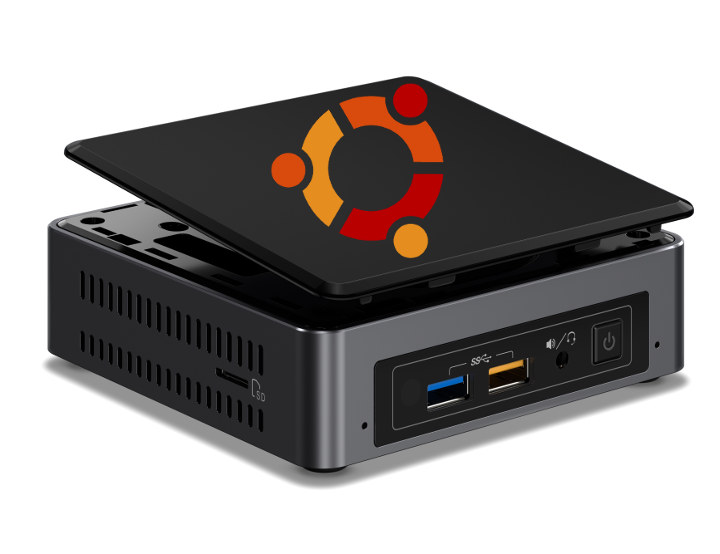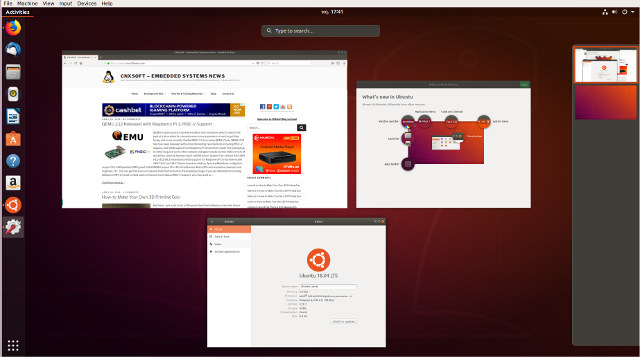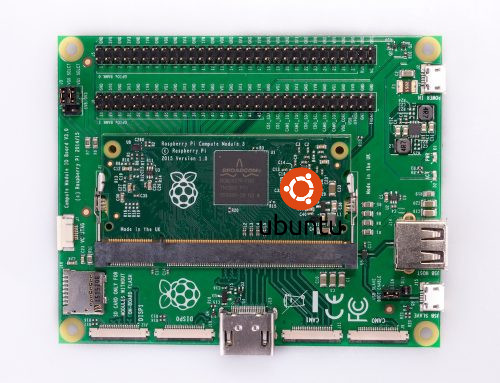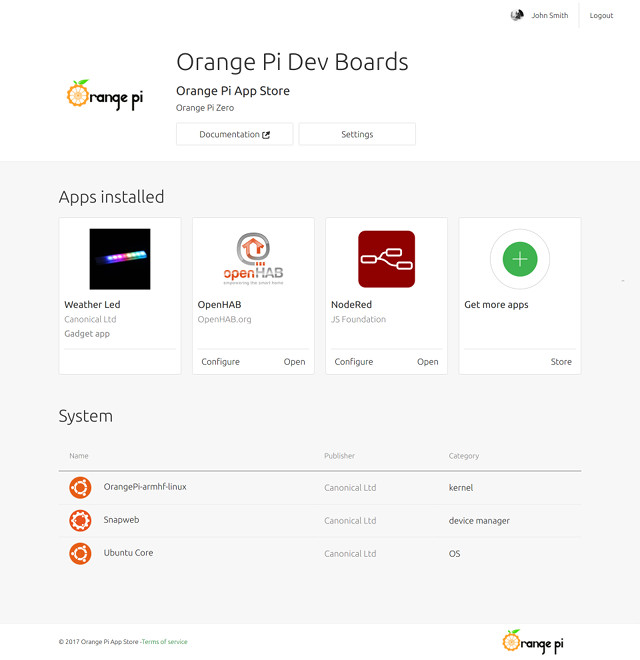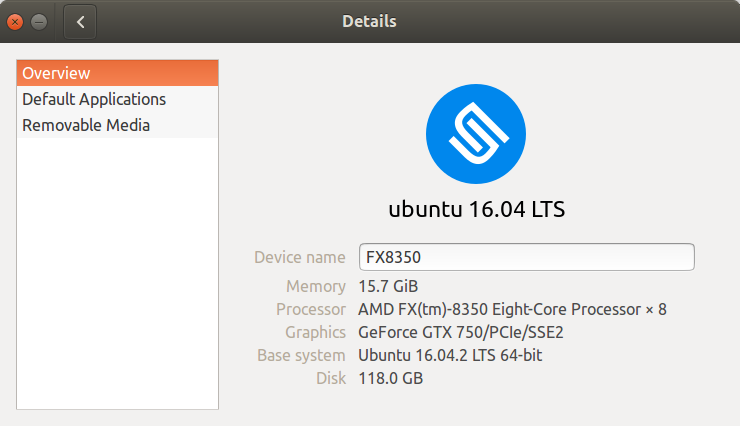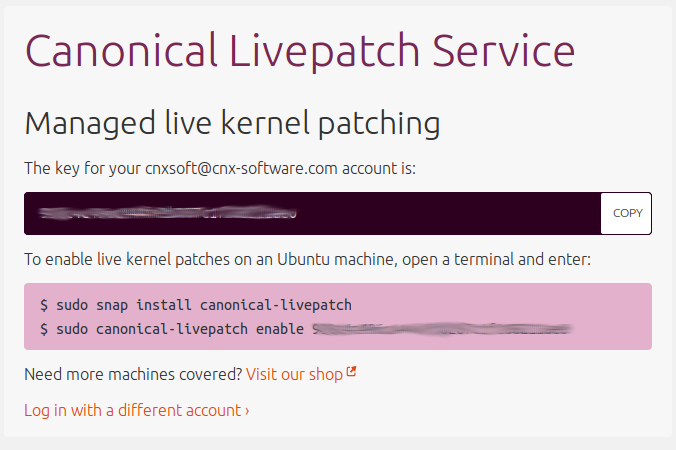In the x86 world, the theory is that you can take a single Linux distro image should work on any x86 compatible hardware. But for Atom-class processors however, including Bay Trail, Cherry Trail, Apollo Lake and Gemini Lake it has not always been the case, especially with features like audio output, Bluetooth, touchpad, and others. That’s why for example, Linuxium (Ian Morrison) decided to write isorepin.sh script in order to respin Ubuntu ISO images for such platforms and fix various issues. However, it appears Canonical and Intel have decided to take matters into their own hand, and have now released Ubuntu 16.04 LTS certified for Intel NUC mini PCs, kits, and boards for IoT deployment. Canonical made available both Ubuntu Desktop and Ubuntu Core images. Most supported devices are based on Intel 7th generation Intel Core processors: NUC7i5DNKPC Mini PC with Intel Core i5-7300U NUC7i3DNKTC Mini PC with Intel Core […]
Ubuntu 18.04 Released – What’s New?
Canonical should release Ubuntu 18.04 “Bionic Beaver” long term support distribution later today. One of the most obvious change compared to Ubuntu 16.04 is the switch from Unity to GNOME 3.28 resulting in a fairly different user interface, although the company tried to keep the look-and-feel are close of the Unity version as possible. There are still some differences such as the dash now appearing on the top center of the screen. Eventually, Ubuntu 18.04 Desktop ISO file will be found on Ubuntu website, but in the meantime, I could update an Ubuntu 17.10 virtual machine to Ubuntu 18.04 using the following commands:
|
1 2 3 |
sudo apt update sudo apt dist-upgrade sudo do-release-upgrade -d |
I’ll update my main machine a little later, maybe after the dot release in July, and my server after that, just in case some bugs have gone unnoticed. You’ll be greeted with a “What’s new in Ubuntu” window after upgrade showing the main part of the […]
Canonical Releases Ubuntu Core 16 for Raspberry Pi 3 Compute Module
Now that Canonical has refocused its development efforts on Cloud and IoT, Ubuntu Core has become even more important for the company, which has just released Ubuntu Core 16 for the Raspberry Pi 3 Compute Module, which is better suited for industrial projects than Raspberry Pi boards, for example thanks to the more resilient built-in storage of CM3 module. Ubuntu Core was already supported on Raspberry Pi 2 & 3, Intel Joule, DragonBoard 410c, Intel NUC, and Samsung Artik boards, as well as KVM to run Ubuntu Core in a virtual environment. One of the advantages of running Ubuntu Core is the availability of snaps and branded app stores, making it easy to provide updates, and promote app for the platform. Screenly is one commercial project that will take advantage of Ubuntu Core on CM3 module for their digital signage applications. You’ll find instructions to get started with Ubuntu Core […]
Amazon AWS Greengrass Brings Local Compute, Messaging, Data Caching & Sync to ARM & x86 Devices
Amazon Web Services (AWS) provides cloud computing services to manage & store data from IoT Nodes over the Internet, but in some cases latency may be an issue, and Internet connectivity may not be reliable in all locations. AWS Greengrass provides a solution to those issues by running some of the IoT tasks within the local network in ARM or x86 edge gateways running Linux. You can still manage your devices from AWS cloud, but a Linux gateway running Greengrass Core runtime will be able to run AWS Lambda functions to perform tasks locally, keep device data in sync, and communicate with devices running AWS IoT Device SDK. Greengrass benefits include: Response to Local Events in Near Real-time Offline operation – Connected devices can operate with intermittent connectivity to the cloud, and synchronizes with AWS IoT once it is restored Secure Communication – AWS Greengrass authenticates and encrypts device data […]
Canonical Refocuses Ubuntu Development Efforts on Cloud and IoT, Drops Convergence and Mobile
Mark Shuttleworth has published a new blog post in Ubuntu Insights, and this is not all good news, as the title “Growing Ubuntu for Cloud and IoT, rather than Phone and convergence” implies. Canonical has decided to drop Unity8, and replace it with Gnome in Ubuntu 18.04, and by extension stop any investment in Ubuntu phone and convergence. The main reasons given for the drop were that few commercial partners were interested in the project, preferring to stick with the most popular mobile operating systems like Android, and the community did not see the work as innovation, but instead fragmentation, probably referring to the Mir vs Wayland saga. On the better news, Canonical is still committed to work on Ubuntu desktop, and will focus on the Cloud and IoT applications such as automotive, robotics, networking, and machine learning, for which the company has gone well so far with multiple commercial […]
Shenzhen Xunlong Software & Canonical Launch Orange Pi App Store for Ubuntu Snaps
The maker of Orange Pi boards, Shenzhen Xunlong Software, has partnered with Canonical to launch Orange Pi app store, allowing developers to gain a simple mechanism to share their applications, projects and scripts with the Orange Pi community. The store relies on snaps instead of deb packages, with snaps allowing a secure distributions of apps bundled with all their dependencies, which according to Canonical can decreased the time for an half an hour installation process to just a few seconds. The community has already contributed hundreds of snaps in the Ubuntu snap store, including openHAB for home automation, Rocket.chat self-hosted chat platform, NextCloud for cloud storage, and wifi-ap for networking. You can get them from the App store, but installing a snap from the command line is easy, for example:
|
1 |
sudo snap install rocketchat-server |
However, I cannot find any Ubuntu Core image for Orange Pi Boards yet on Ubuntu Core Getting Started page. […]
How to Upgrade to Linux 4.8 in Ubuntu 16.04.2
I had read from several news sources that Ubuntu 16.04.2 would come with Linux 4.8. My system was upgraded from Ubuntu 16.04.1 to Ubuntu 16.04.2 this week-end, but I still had Linux 4.4.
|
1 2 3 4 5 6 7 |
cat /etc/lsb-release DISTRIB_ID=Ubuntu DISTRIB_RELEASE=16.04 DISTRIB_CODENAME=xenial DISTRIB_DESCRIPTION="Ubuntu 16.04.2 LTS" uname -a Linux FX8350 4.4.0-62-generic #83-Ubuntu SMP Wed Jan 18 14:10:15 UTC 2017 x86_64 x86_64 x86_64 GNU/Linux |
So I wondered why that was, and eventually found my answer on Reddit thanks to EndofLineLF user: If it isn’t a new 16.04.2 installation then you won’t have newer kernel. If your install started as 16.04 or 16.04.1 then with all updates installed “lsb_release” will display 16.04.2 as version because that’s what you have. The switch to HWE (Hardware Enablement Stack) was never automatic. So if you want newer kernel you have to install it manually. https://wiki.ubuntu.com/Kernel/RollingLTSEnablementStack#Packages-1 sudo apt-get install –install-recommends xserver-xorg-hwe-16.04 This will also install the new HWE kernel because it is recommended for that package. Upgrading to the new kernel is completely optional, and Linux 4.4 will still get security updates, but I did […]
Canonical Livepatch Service Automatically Updates Ubuntu 16.04 LTS (and later) with the Latest Kernel without Rebooting
Installing or upgrading packages in Linux distributions does not normally require rebooting your system, except for the Linux kernel and drivers. But since Linux 4.0 kernel, Live Kernel patching is possible, meaning Linux kernel updates can be performed without having to reboot your server or computer. Canonical is now taking advantage of this new feature with their Livepatch Service available for Ubuntu 16.04 LTS and greater. If you want to enable it on your machine, you’ll have to authenticate to Livepatch portal to get a key / token for the service as shown in the screenshot above. Now you can install the service:
|
1 |
sudo snap install canonical-livepatch |
and enable it with your token:
|
1 2 |
sudo canonical-livepatch enable [your-token] Successfully enabled device. Using machine-token: [your-token] |
That’s it. Your can check Livepatch service status with the command:
|
1 2 3 4 5 6 7 8 9 10 11 12 13 14 15 16 |
canonical-livepatch status --verbose client-version: "5" machine-id: [your-machine-id] machine-token: [your-machine-token] architecture: x86_64 cpu-model: AMD FX(tm)-8350 Eight-Core Processor last-check: 2016-10-25T19:35:55.009247615+07:00 boot-time: 2016-10-25T09:00:09+07:00 uptime: 10h52m7s status: - kernel: 4.4.0-45.66-generic running: true livepatch: state: nothing-to-apply version: "" fixes: "" |
In my case, an update was not necessary, but if there’s one you should see something like:
|
1 2 3 4 |
livepatch: state: applied version: "12.2" fixes: '* CVE-2012-6828' |
That way you can make sure your system always […]


